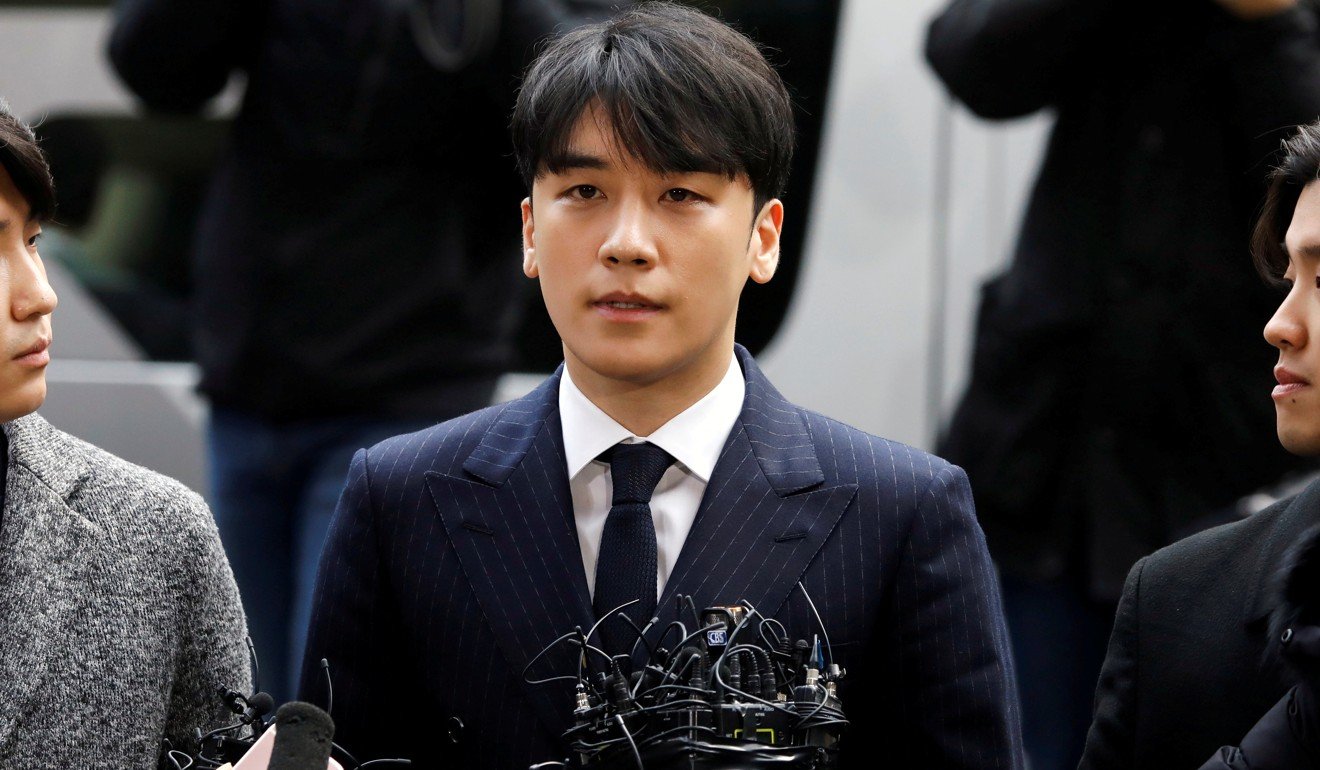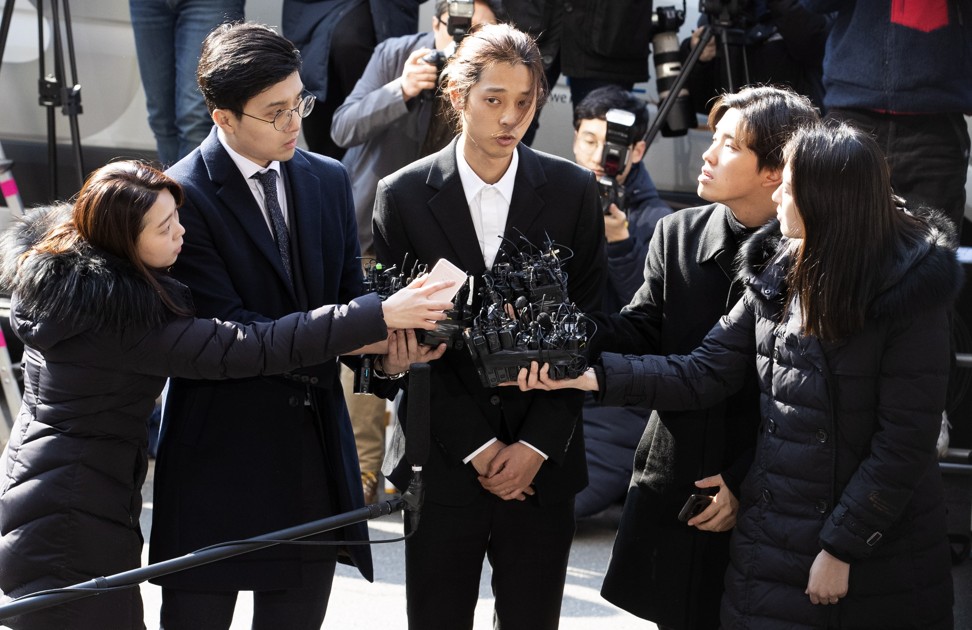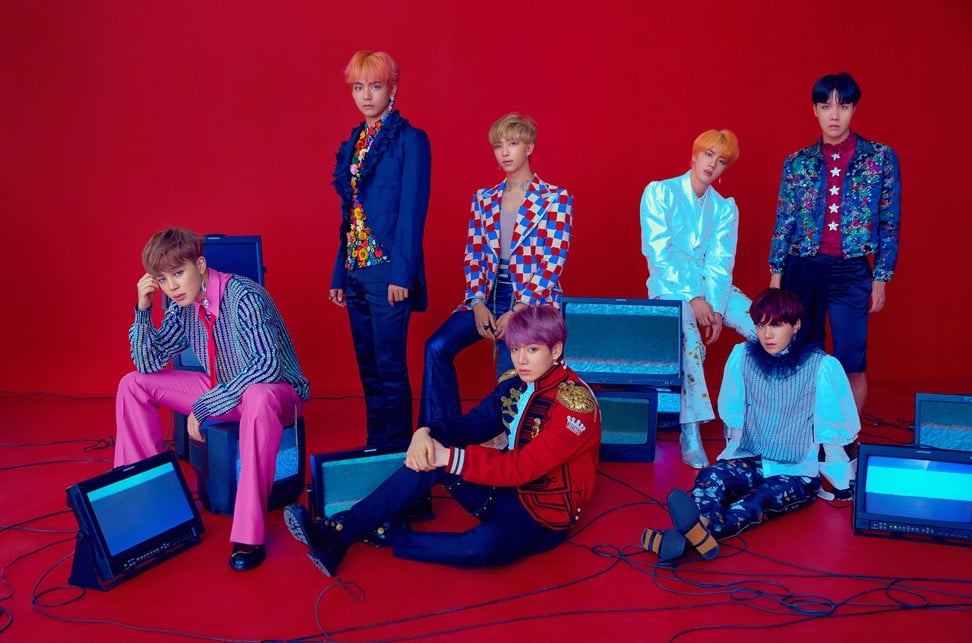
What K-pop sex-and-drug scandals say about the dark reality that belies South Korea’s conservative values
- K-pop stars’ squeaky clean image and raunchy performances have always been incongruous, and are increasingly out of sync with the modern world
- Recent scandals reflect not only the dark side of the music industry, but of South Korea too
By David Tizzard
German sociologist Max Weber believed that modernity is defined not by technological or scientific developments, but rather a change in the way that people think. It involves ideas that are capable of both shaping and defining the worlds we inhabit.
A traditionalist society does not question things. It adopts a position in which the right of kings is accepted simply because that is the way it always has been. A reluctance to change grips people’s minds, leaving them in both a state of fear and submission.
A modern society, on the other hand, brings with it citizens who rationalise. The population questions authority, traditional cultures and practices, and is able to reflect on its own behaviour.
The past few weeks in South Korea has seen those two ways of thinking clash with the disturbing revelations of sexual abuse and malpractice by some of its formerly most beloved K-pop idols. How far this story reaches is as yet unknown, but some believe that it extends to lawmakers, politicians, police officials, and beyond.

Kang Kyung-yoon, a reporter for South Korean television station SBS, brought to light a distressing and horrific chat room in which male pop stars including Jung Joon-young, Seungri and Yong Jun-hyung were found to have been sharing secretly recorded videos of them having sex with women, some of whom had been rendered unconscious with drugs.
The entrapment of young women was seemingly a game to those involved. An attitude of competition and point-scoring was clearly visible. A sense of entitlement brought about by power and deeply entrenched values.
Kang’s bravery should be lauded. Moreover, her concerns about the reactions to these events and the industry itself should not go unheeded: “We may have become too lenient to their wrongdoings in the name of the Korean Wave.”

The Korean Wave, otherwise known as hallyu, is designed for export. The K in K-pop is an exonym, because to Koreans the country is known as “Dae-han Min-guk”. Han-pop doesn’t quite work though, does it?
And what is generally understood to be actual Korean music – whether the traditional sounds of pansori or the ubiquitous sounds of ballad-drenched electronic trot – does not get that moniker applied to it.
BTS, a boy band not implicated in this latest scandal, have taken a large part of the world by storm with this latest manifestation of Korean pop.
Their catchy electronic hooks, along with J-Hope’s dancing and RM’s ability to speak English, have been combined with a social media presence that would make even the most active Russian political bots blush.
South Korean President Moon Jae-in has taken to Twitter on multiple occasions to promote the band and lavish praise on their success.
Still, politicians aligning themselves with the musical stars is not anything new. K-pop is often used as a soft-power weapon to bolster the image of the country and detract from the still unresolved civil war that it fought nearly 70 years ago with North Korea. It also serves to sell dreams to the people.

Last October I wrote a piece titled “K-Pop Sucks” in which I decried the strict and backward practices observed in the Korean music industry.
While many readers wrongly perceived it as an attack on their favourite artists, the country as a whole, or as trying to objectively judge something as subjective as music, it was more about the suffocating nature of the business.
Little has changed and issues related to sex remain a problem. The infantilisation of Korean pop stars is often enforced through contractual agreements.
These cosmetically beautiful starlets are forbidden from dating or conveying any indication of having romantic interests of an adult nature in their own lives.
Yet on stage they are hyper-sexualised, wearing skimpy clothes and dancing provocatively, playing up the well-known “Lolita” complex and appealing to older male fans. Their image is then carefully constructed to have them perceived as blissfully unaware of what a real grown-up, modern relationship is like.
These stars, in their mid-20s, carry on as children, making heart shapes and blowing kisses to their fans while living an outwardly visible life of supposed celibacy.
The Korean K-pop fan is rather idiosyncratic, too. Many believe they are in actual relationships with the idols.
It is this view that primarily prevents the stars from having relationships, because to do so would be seen to be cheating on their fans, who in turn are their customers and drivers of this industry.

The Western world has also seen first-hand what happens when institutions promote chastity and abstinence, such as the Catholic sex abuse scandals.
Yet in South Korea, the severity of spy-cam porn and the illegal filming of women (and men, but to a far lesser extent) is undeniable. The number of protests and documentaries, as well as victims and criminals, highlight the widespread nature of this perverted phenomenon.
While South Korea deserves praise for its political and social development, particularly as it finds itself surrounded by countries not willing to develop, several industries seem unwilling to modernise.
And although not everyone in the K-pop industry should be tarred with the same brush or blamed for the actions of a few, the music business is not being challenged enough for continuing to operate along traditional lines.
Idols are often recruited at a young age and then forced to adopt practices, habits, and behaviours very much out of sync with how people should grow and develop in the modern world.
They also miss out on important life lessons and crucial aspects of development as they stay under the control of companies seeking profit and national success.
To prevent more abuses in the future, we should reconsider our attitudes towards K-pop, because, as recent events have shown, it’s not just the art that is suffering.

